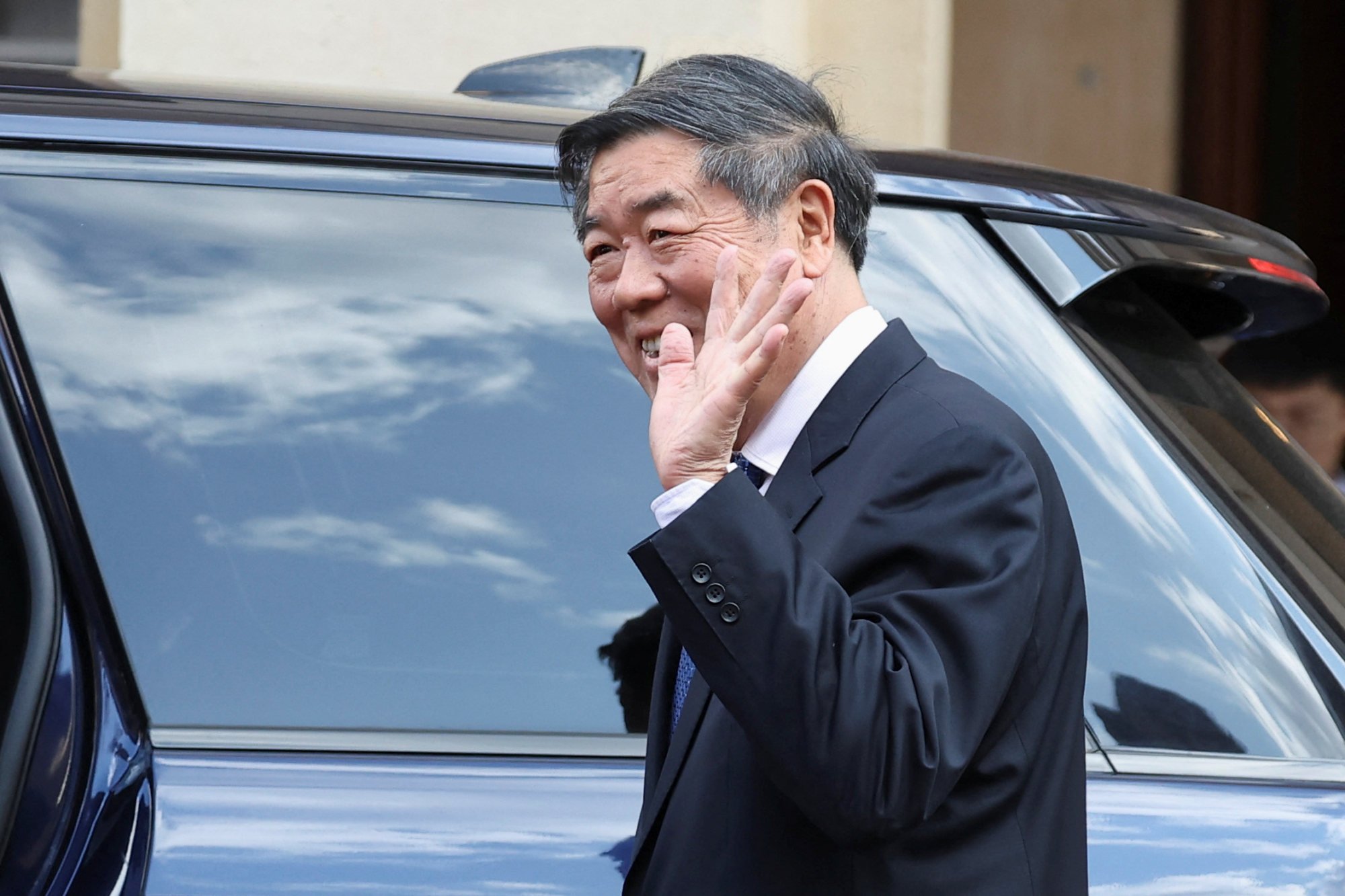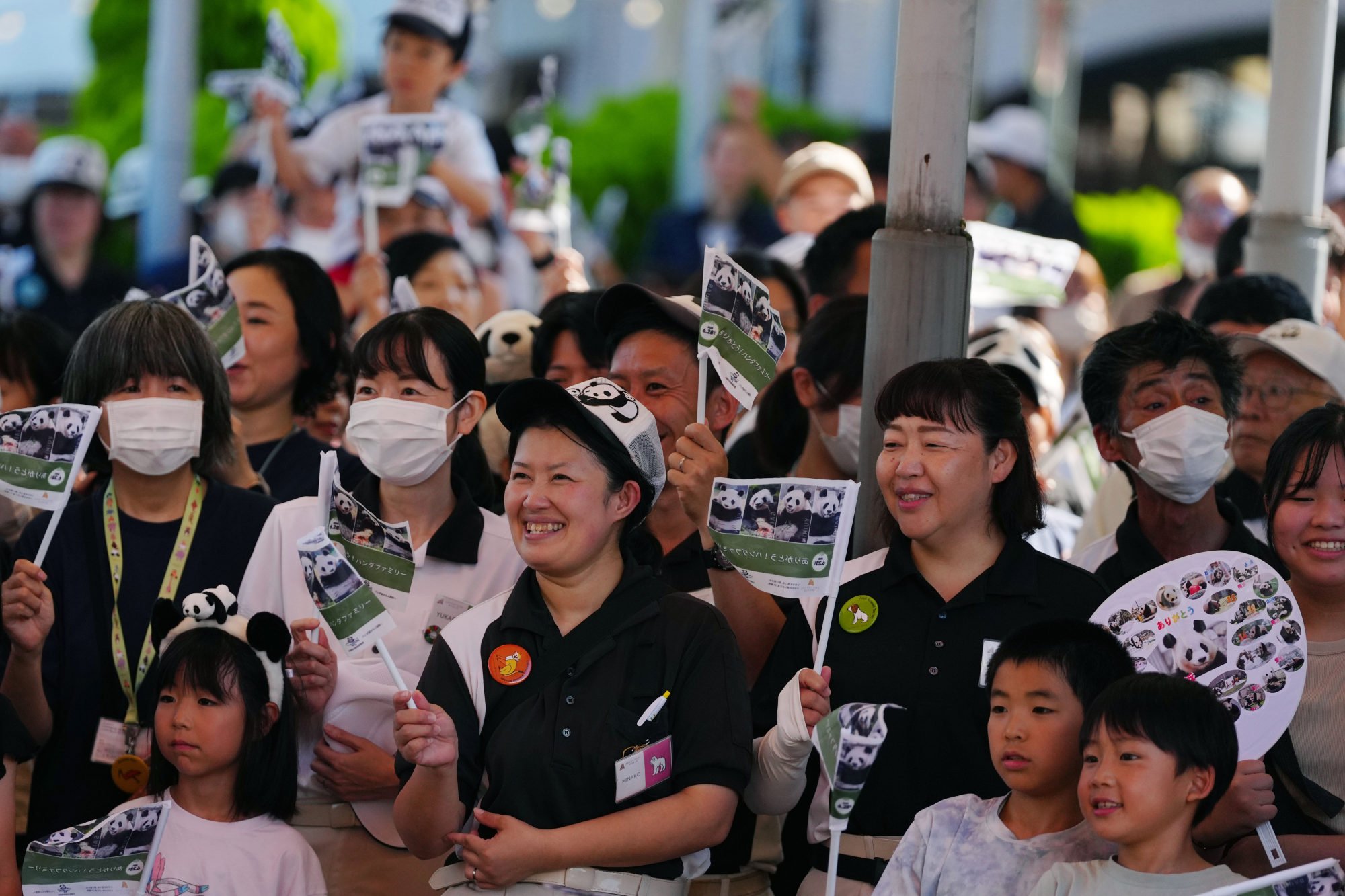Will more pandas boost China-Japan ties amid US tariff anxiety?
Panda loans can be a ‘bargaining chip’ to make bilateral ties stronger and allow China to show it can be a regional leader, analysts say

Panda diplomacy is back in play as Japan seeks to charm visiting Chinese Vice-Premier He Lifeng with hopes of securing one or two of the endangered bears on loan.
The gesture could help soothe bilateral ties and signal regional unity amid growing unease over US trade policy under President Donald Trump, analysts have said.
He, a close adviser to President Xi Jinping, is scheduled to attend the World Expo in Osaka for “national pavilion day” at the Chinese pavilion on Friday.
The Yomiuri newspaper reported on Sunday that Hiroshi Moriyama, secretary general of the ruling Liberal Democratic Party and chairman of the Japan-China Parliamentary Friendship League, would meet He in Osaka and request the loan of at least one panda for a Japanese zoo.
There was an outpouring of sorrow when four pandas kept at a wildlife park in Wakayama prefecture, central Japan, were returned to their homeland in June. At present, there are only two pandas in the country, at Ueno Zoo in Tokyo, and those are due to return to China in February.

“Japanese people love to see pandas and they are deeply symbolic, but it goes beyond that at a time like this,” said Hiromi Murakami, a professor of political science at the Tokyo campus of Temple University.
“With the US administration being so harsh on tariffs on both countries at the moment, I think both sides are trying to build better relationships with other countries in the region,” she told This Week in Asia.
“In this situation, pandas are effectively a bargaining chip that can be used to make bilateral ties stronger and, for China, to show to the rest of the world that it is willing to work with Japan and other nations and can be a regional leader.”
Improved ties with its giant neighbour would appeal to Tokyo as well given current trade tensions, Murakami said. Trump on Monday slapped 25 per cent unilateral tariffs on Japan and South Korea, to take effect from August 1.
“It’s not just because of this US administration, but it has reinforced the message that Japan really needs to diversify its trade and economic partners and build resilient supply chains,” she said.
To underline that position, she pointed out that new South Korean President Lee Jae-myung was pushing hard to arrange an official visit to Japan, just a month after he took office.
Japan and the European Union announced in June a major upgrade to their cooperation in the defence sector, while Mitsubishi Corp is preparing to start importing liquefied natural gas from Canada in the coming months, with imports eventually expected to meet about one quarter of total Japanese demand.

Jeff Kingston, director of Asian Studies at Temple University, described discussions on the loan of pandas to Japan as another example of recent “softball diplomacy”.
“There is a greater desire to seek common ground on both sides, with China relaxing some of the regulations on imports of Japanese seafood and the ministry of education in Tokyo announcing that it will cut living expenses for foreign graduate students,” he said.
Unhandled type: inline-plus-widget {“type”:”inline-plus-widget”}
“Chinese students make up [more than] one-third of all the foreign students in Japan, so that will be a welcome subsidy.”
Kingston, however, said tongue in cheek that he did not expect Japan to make “major concessions” on the Diaoyu Islands – the disputed archipelago in the East China Sea also known as the Senkaku Islands in Japan – as a result of the pandas. “But the ripples of what is happening in America are travelling around the world.”
China may not even require a reciprocal move from Japan after the pandas are delivered, according to Murakami.
“It is enough for Beijing to show that it is a leader in the region and is willing to work with other countries on trade and in other sectors,” she said. “China is becoming the guardian of this freer trading system, the system that the US used to control.”